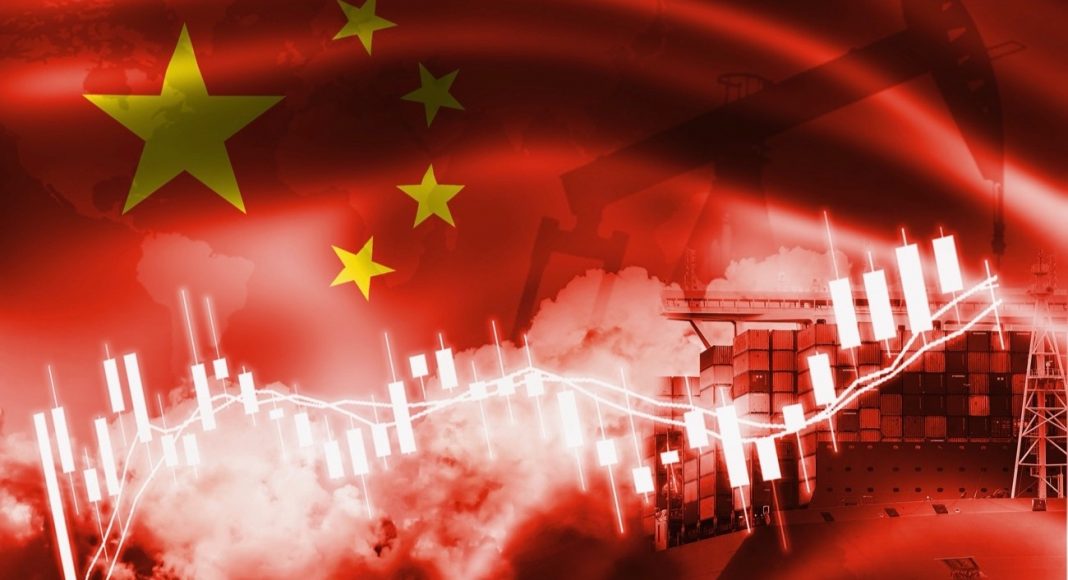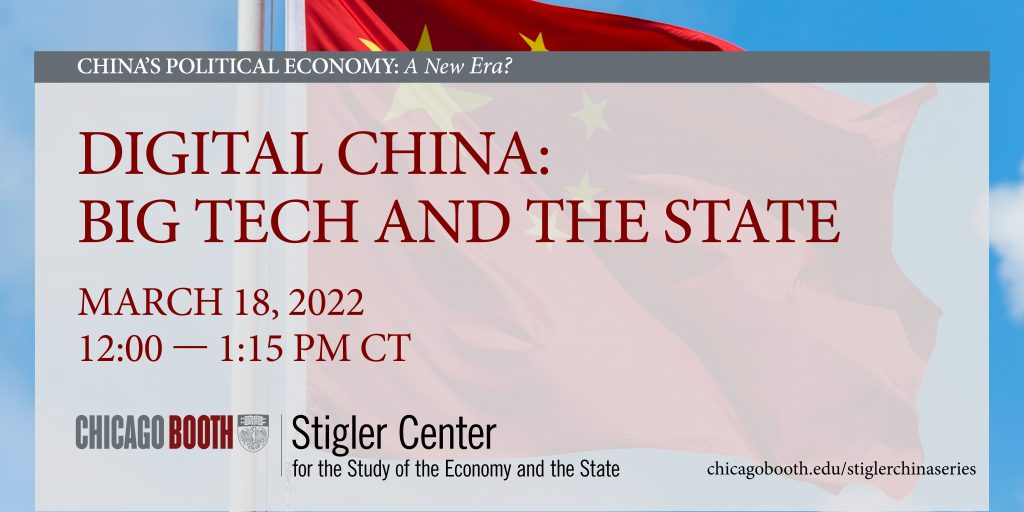A Stigler Center panel, part of our new series on China’s present-day and future prospects, explores the legacy of Xi Jinping, China’s global standing, and what the future holds for its economy.
Is China facing a new era in its development? The world’s second-largest economy is currently experiencing an economic slowdown, a sweeping government crackdown on Big Tech and other parts of its private sector, escalating tensions with the United States, and growing questions regarding who will someday succeed long-time leader Xi Jinping, China’s most dominant leader since Deng Xiaoping. All of these suggest profound changes to China’s political economy.
Where is China headed? Is it, as some fear, toward an inevitable conflict with the US and the West? Will Xi continue to consolidate his power over the private sector? To answer these questions and more, the Stigler Center is hosting a series of conversations on China’s current situation and future prospects.
The first of these conversations, held earlier this week, featured Zhiguo He, the Fuji Bank and Heller Professor of Finance and Jeuck Faculty Fellow at the University of Chicago Booth School of Business; Minxin Pei, the Tom and Margot Pritzker ’72 Professor of Government and George R. Roberts Fellow at Claremont McKenna College; Susan Thornton, a Senior Fellow and Visiting Lecturer at Yale Law School’s Paul Tsai China Center; and moderator Jamil Anderlini, Editor-in-Chief of Politico Europe.
“What China wants is actually pretty simple,” Thornton said during the panel. “Its focus is primarily about its own stability and development. What are the things that would assist with that, and what are the things that would impede that? It wants to keep connections with other economies to gain resources that it needs for its development. It wants a peaceful and prosperous neighborhood, because it has an awful lot of borders with other countries—and they need tight internal controls, from their perspective. On top of that, China wants respect in the world. The open question is whether China believes that it needs to dominate the world militarily and economically in order to achieve these things.”
As Xi gets ready to secure a very-likely third term during the Chinese Communist Party’s upcoming congress in the fall, he is also leading a series of regulatory reforms and crackdowns on businesses under his “common prosperity” policy. What does Xi want? Having immensely changed China since he came to power in 2012, said Pei, Xi “would like to make himself not just the most powerful leader but a leader that would stay on for an extended period of time, and to ensure that the Communist Party will continue to govern. He is quintessentially a party man, in the sense that he has a profound emotional, ideological attachment to the idea of the Communist Party’s supremacy but also, perhaps, political immortality. He’s doing everything he can to ensure that the party members remain loyal to the party, the party controls most aspects of life in China, and any sort of challenge to the party from within China would not actually be viable.”
Xi, Pei added, “wants to create a new narrative in China, that would convince the Chinese people that China’s stay in the sun has arrived, [that] he’s elevated China to a new status in the global community.” Whether he succeeded in achieving these goals, he said, is a complicated question.
As for China’s clampdown on companies like Alibaba, it is not merely a question of politics, but “a very well-defined, economic question, with a clearly-defined benefit and a cost,” said He. “What happened basically is that the platforms economy needs regulation, and Xi feels like this is the right time.” The Chinese housing sector is undergoing a similar process for the same reason, he added: “Housing is a cancer to the Chinese economy. There’s no best way to deal with it; it’s always ugly. But is this like the end of the innovation? That’s far from the truth.”
You can watch the webinar here:
Also, join the Stigler Center for the second virtual event in this series, “Digital China: Big Tech and the State” on March 18, 2022 at 12pm CT:







